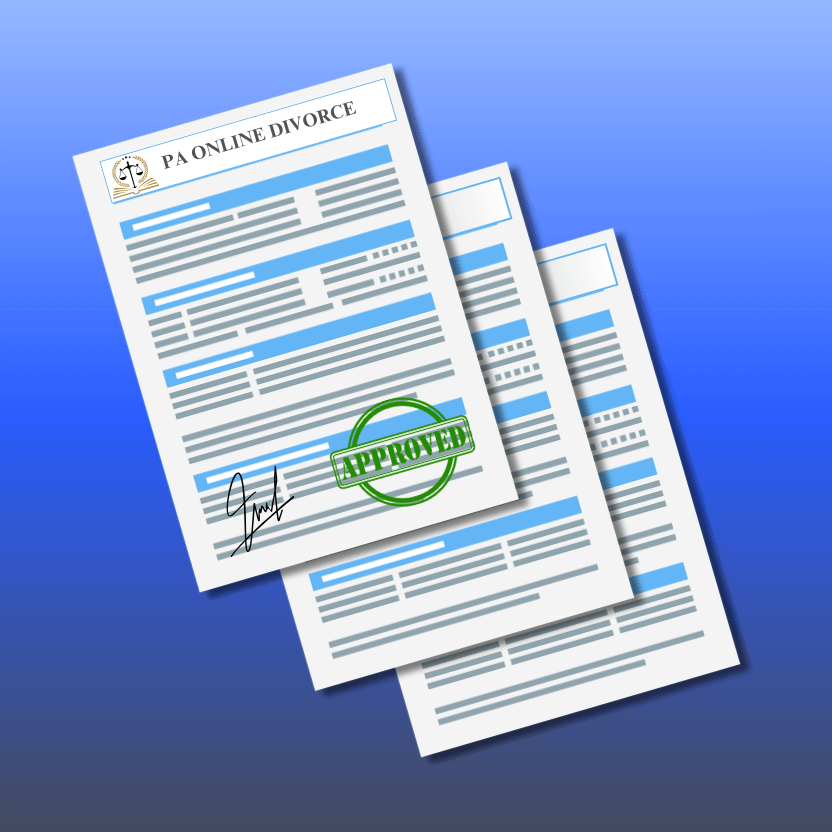In addition to terminating marital relations, divorce is meant to resolve the issues of assets and debts split between the parties. However, financial disagreements usually occur much earlier than time comes to property division. Most often, the first problem spouses face is who pays bills during divorce.
Some of the most frequent questions are: “I pay all the bills in my marriage, so should I keep doing it?” or “Does my husband have to pay the bills until we are divorced?”. As it depends on a range of factors, there isn’t a definitive answer. Who pays for a divorce and utility and mortgage bills may depend on a specific case.
Household Bills During a Divorce
Even though you have already decided to get a divorce online, you still have financial obligations to meet while the court proceedings are ongoing. Regardless of whether you live separately and have disputes over the divorce terms during separation, who pays the bills is one of the main issues you must resolve before the court grants you marriage dissolution.
The list of payments that you will need to split may include:
- Mortgage;
- Rent;
- Car service;
- Medical insurance;
- Utilities, etc.
Most often, the spouse who was the breadwinner or who earns more continues to pay the bills. However, expenses may be imposed on the other party. It depends on how spouses plan to divide their property and whether they can agree on sharing the accounts themselves.
Parties who can independently resolve the issue of who pays rent during separation, along with other disputes regarding the payment of utilities, cars, etc., usually do not need the court’s help and can agree on their own. It will allow them to avoid temporary court battles and file for an uncontested divorce by preparing a Marital Settlement Agreement. In order not to delay any of the payments, parties should make a list of the bills they must cover and divide them between themselves in a convenient way.
If a separated husband stopped paying bills or spouses cannot agree on their division during the divorce, this issue is usually resolved in court. To determine who will pay for the car, mortgage, or utilities, parties need to submit a request to the court for the issuance of a temporary order. This practice is common in contested cases when spouses have disputes about how their assets will be used and how their accounts will be shared during the divorce proceedings.
The temporary court order is not final; it is issued only for a certain period of time until the dissolution of marriage is granted. In it, the judge determines who will make specific payments during the divorce.
When deciding on this issue, the court may take into account several factors:
- Who paid the bills before filing for divorce?
- What expenses does each of the spouses have?
- Are parties self-sufficient?
- Does any party need spousal support for the period of divorce?
- Where and with whom minor children will live?
This list of factors can be continued as other case-specific circumstances may influence the court’s decision.
What If My Spouse Stops Paying the Bills?
The situation when the husband stopped paying bills can lead to negative consequences, especially if both of you have to contribute to a household account. The answer to the question, “What can I do if my husband refuses to pay bills?” will depend on the circumstances and your plans for the division of joint property. In some cases, you will have to go to court; in others, you may need to contact a mortgage company. Let’s discuss your actions in more detail, considering joint and solo accounts situations.
Joint Mortgage Payments
The basic rule for making divorce mortgage payments after separation is that you must continue to pay the same percentage you paid before filing for marriage dissolution while the process is ongoing. For example, if you and your spouse contribute 10% of your income, your proportions may remain the same until the divorce is granted.
If you and your spouse’s names are listed in the contract but you cannot decide who pays the mortgage during a divorce, or if the other party declines to make the required payments, you can apply to the court for a temporary order.
The joint mortgage assumes that you and your spouse are equally liable for paying it. Therefore, neglecting to cover mandatory bills will negatively impact both of you. You should agree with the other party beforehand or, as previously indicated, take legal action to avoid such a situation.
You can sell the house if you don’t want to save it and continue to pay the mortgage bills. If you or the other party wishes to keep the property, you may contact the mortgage company to modify the payment terms. Then, you will need to negotiate with your spouse or decide in court how compensation for the part of the mortgage paid off by the other party will be made.
If you owe paying a mortgage, you can go to court to decide how it should be divided or to offset it by selling your home.
Utility Bills in One Name or Sole Mortgage
When it comes to separation, and utility bills appear to be assigned to only one of you, paying them will continue to be the financial responsibility of the assigned party. If you received and paid bills in your name during the marriage, you must keep doing so during the divorce. If either spouse doesn’t pay the bills, it can have negative consequences for both parties.
If the mortgage was issued for one of you but is paid from a joint bank account, the payments can be continued in the same way until the divorce is finalized. Such a mortgage will be considered your joint property and will be subject to division during the marriage dissolution.
If you cannot pay your utility bills or mortgage on your own and your spouse refuses to contribute, you can file for the issuance of a temporary order or spousal support with the court. According to 23 PA CONS ST §3702, the court may decide on appointing pendente lite alimony to ensure a comfortable standard of living for those spouses who cannot support themselves.
Concerned about paying utility bills, many people ask, “Should both spouses’ names be on utility bills, and will such a decision have its advantages?” Answering this question may not be easy.
Can utility bills be in joint names? Depending on the utility company’s regulations, it may be permitted or prohibited. In case you are married and split household expenses, you can most likely name both of you on utility bills. After your property is transferred to one of you, you will need to change the documents and put your data on the accounts. Most often, changing the name on utility bills after divorce will be easier if you are both responsible for paying them.

What Benefits Can Be Claimed When Separating from Your Spouse?
The financial responsibility during separation can be determined by spouses independently or by the court, depending on whether your divorce is contested.
Given that many women devote their time during marriage to taking care of children and the household while their husbands build a career, they need the answer to the question, “Does a husband have to support his wife during separation or divorce?”
Pennsylvania law provides financial assistance to spouses who are not self-supporting in the form of alimony for the period of separation and/or after divorce (23 PA CONS ST §3701). It is designed to guarantee comfortable living conditions to the parties who cannot provide for themselves and support them on their way to self-sufficiency. When deciding on alimony, the judge will consider the following factors:
- Age and health of both parties.
- Marriage duration.
- Level of education and employment opportunities.
- Living conditions during marriage.
- Parties’ needs, etc.
How much do I have to pay my wife if we separate? It depends on the circumstances and is determined by the court’s decision. Pendente lite alimony is awarded for the period of marriage dissolution, while post-divorce support will last as long as the judge decides.
In addition to alimony, divorcing parties can apply for other financial assistance programs. In particular, spouses who are entitled to receive social security can get financial assistance from the SSA (Social Security Administration) based on the former spouse’s record if:
- The duration of their marriage exceeded 10 years.
- They have the right to disability benefits or a social security pension.
- Their ex-spouse is over 62 years old.
- The payments that the ex-spouse could receive on the basis of their spouse’s work are higher than what they receive on the basis of their own.
Some divorced parties are also entitled to tax benefits. Their types and conditions are specified in Publication 504 of the Internal Revenue Service (IRS).
Do Children Affect Who Pays the Bills During a Divorce?
Couples with children under 18 need to resolve the issues of child maintenance after divorce to provide them with basic needs and decent living conditions. Spouses can do it independently by concluding a Marital Settlement Agreement or filing a request to decide the amount of child support for each of them with the court.
How much should a dad pay for child support? In Pennsylvania, child support can be calculated according to the table in Pa. Code Rule 1910.16-3 or by the formula defined by Pa. Code Rule 1910.16-4. According to current legislation, the court must determine how much parents will spend on child support based on their income and the number of minor children. Additionally, the judge can take into account the special needs of children, their state of health, parents’ ability to earn, and other factors. In some situations, the mother may pay child support instead of the father, which mostly depends on who earns more and who has custody of the children or who lives with them most of the time.
Many parents also ask, “Do I have to pay child maintenance if my ex earns more?” Child support is usually paid to the parent who lives with the children or has a lower income. However, it may differ due to many circumstances and conditions of child custody determined by the court.
Whether paying child support will affect bills during a divorce can vary from case to case. For example, if one of the parties is insolvent and the court orders alimony for their maintenance, the spouse providing it will most likely be responsible for paying household expenses. In other cases, they can be divided between both parties or be carried out regardless of the terms of child support.
How bills are divided during a divorce varies depending on many circumstances. Their list includes the case type, the parties’ income, the method of drawing up contracts with utility and mortgage companies, the involvement of minor children, etc. The way to settle this issue, avoiding court hearings, is to agree on your own. A more time-consuming option is to file for an issuance of a temporary order with the court.

Filing for an uncontested divorce online without lawyers can be easy if you have the right forms and instructions. Make the first step towards your online divorce in Pennsylvania with us.

